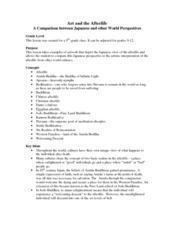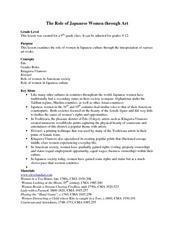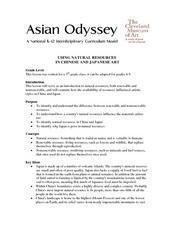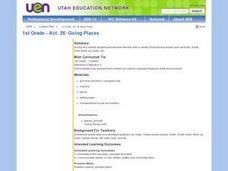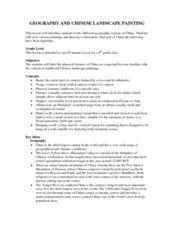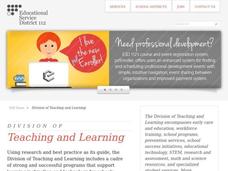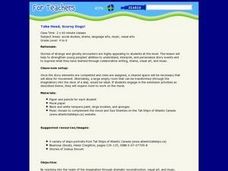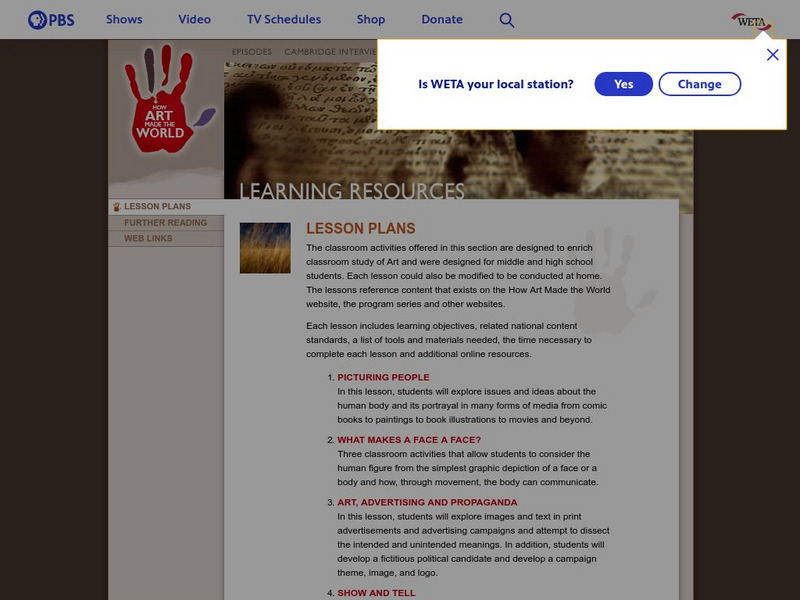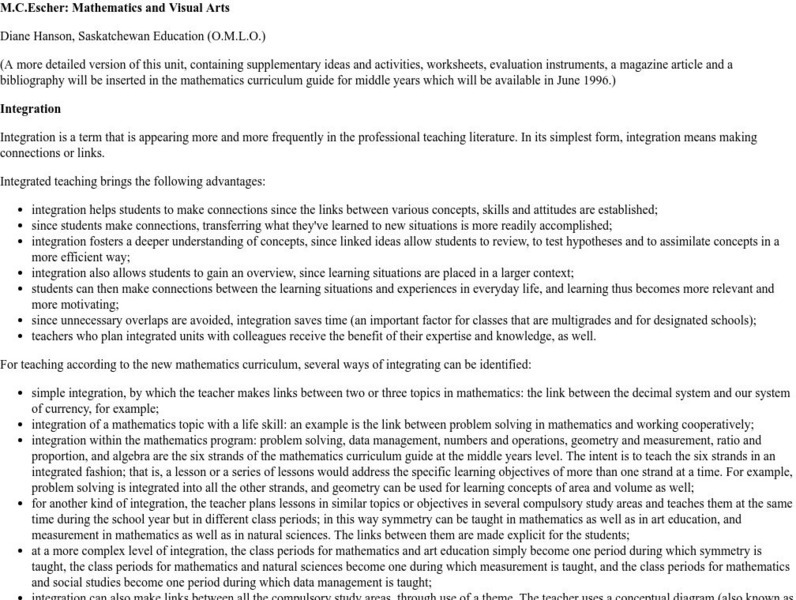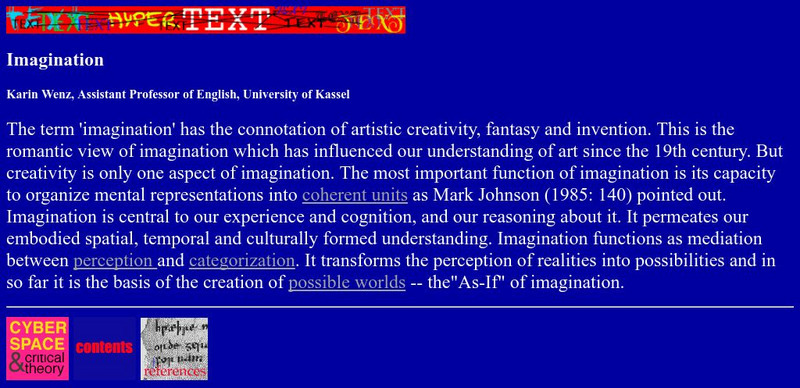Curated OER
Art And The Afterlife
Students discuss various cultures and their beliefs of the afterlife in this study of Japanese art. The final evaluation is done through the creation of student collages illustrating their beliefs of the afterlife.
Curated OER
The Role of Japanese Women through Art
Learners examine the role of women in Japan through Art and create collages using learned knowledge that depict the role of women in America today in this exciting Art or Social Studies lesson.
Curated OER
Getting Oriented
Students explore the geography, culture, and philosophy of Asia using all five senses and information about China and Japan. This lesson plan is detailed and may take several days of in-class activities to complete.
Curated OER
Using Natural Resources In Chinese And Japanese Art
Students discuss the uses and availability of natural resources in China and Japan and how those resources effected visual art from each country. This activity includes two possible enrichment activities.
Curated OER
Breaking News English: UK Cathedral to Play Lennon's Imagine
In this English worksheet, students read "UK Cathedral to Play Lennon's Imagine," and then respond to 1 essay, 47 fill in the blank, 7 short answer, 20 matching, and 8 true or false questions about the selection.
Curated OER
Lesson 4: A Field Trip to the Maine State Museum
Students analyze the Maine State Museum's exhibit 12,000 Years in Maine. They create an artifact and write a description of that artifact that demonstrates their understanding of the way technology shapes culture.
Curated OER
Lesson 1: Design a Transportation Stamp
Students, in groups, research a certain form of transportation that has affected Maine's economic and cultural development. They write a persuasive letter that uses the research to support an argument.
Curated OER
Fujiyama
Students examine and discuss Mt. Fuji (Fujiyama) and its effect on the culture and philosophy of Japan. This high school lesson plan is ideal for a Social Studies, Humanities, or Asian Studies class.
Curated OER
Environment: Going Places
First graders learn directional words and apply this skill to map making. They record their steps on paper.
Curated OER
Lesson 1: Powerless?
Students formulate interview questions based on the information they learn from the video Power Lines. They conduct an interview with a relative, friend, or community member over 60 years old.
Curated OER
Outdoor Observation
Students examine their outside environment. They use their senses to make observations of the four seasons. They keep a chart of all of the data they have collected.
Curated OER
Geography And Chinese Landscape Painting
Fourth graders label the physical features of China on a map and become familiar with
the content of traditional Chinese landscape paintings in this lesson intended for the forth grade classroom.
Curated OER
The Great Depression and the Arts
Students engage in a dialogue about the Depression, the impact of the New
Deal, the role of Franklin Delano Roosevelt, the survival of Democracy, and the
resiliency of the American spirit.
Curated OER
Take Heed, Scurvy Dogs!
Students examine the use of ghosts in shipping stories. As a class, they assign roles and they act them out in a play. They make it seem as if they are in danger on their voyage and work together to create a script. They ask questions...
Curated OER
Non-Objective Constructed Sculpture
Students begin their examination of non-objective artwork. Individually, they participate in activities in which they take designs within other images and use them for their focus in their art. They create a sculpture with the new...
PBS
Pbs Teachers: Learning Resources for How Art Made the World
Access five lessons that would enrich any curriculum about ancient civilizations and the art produced by those civilizations. Using the PBS documentary "How Art Made the World" as a jumping off point, the lessons ask learners to think...
University of Regina (Canada)
University of Regina: Math Central: m.c.escher: Mathematics and Visual Arts
This cross-curricular middle school unit integrates mathematics and visual art. Through the study of the M.C. Escher?s work, students explore tiling from both a mathematical and artistic point of view. Points for discussion and...
Other
Cyberartsweb: Imagination
This site, which is provided by Cyberartsweb, gives a brief definition of term "imagination" with links to related concepts.
TeachEngineering
Teach Engineering: Riding the Gravity Wave
Students write a biographical sketch of an artist or athlete who lives on the edge, riding the gravity wave, to better understand how these artists and athletes work with gravity and manage risk. Note: The literacy activities for the...
Smithsonian Institution
National Museum of African Art: Big and Small Are Tricky
An exhibition that uses African art to explain the concepts of bigness and smallness. In the world of art, big and small can refer not only to physical size but to relative size, to the impression an object makes, or to the largeness of...
Louisiana Department of Education
Louisiana Doe: Louisiana Believes: English Language Arts, Grade 11: Connecticut Yankee
Students learn how changing worldviews resulting from industrialization and war led artists to find new ways of understanding the world. Students explore the concepts of tradition and change as they examine how authors use devices and...
